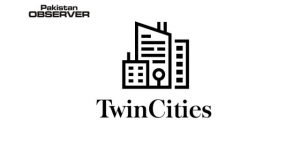Staff Reporter
Over 50 top scientists belonging to 21 countries are reaching Karachi to participate in the 23rd meeting of the Coordinating Council of the Commission on Science and Technology for Sustainable Development in the South (COMSATS) being held in conjunction with the Conference on Science and Technology for Sustainable Development, scheduled to be held on March 2-4, 2020.
The events are being hosted by one of the Centres of Excellence of COMSATS in Pakistan, the International Center for Chemical and Biological Sciences (ICCBS).
The Coordinating Council comprises the Heads of COMSATS’ 22 International S&T Centres of Excellence, which serves as the technical resource base for the organization’s projects and programmes in the Member States. As a major platform for South-South scientific cooperation, the annual meetings of the Coordinating Council review the activities of COMSATS’ Network; follow up on the decisions and recommendations made in the last meeting(s) and outline the future course of action for COMSATS’ international programmes and activities.
The Coordinating Council Meeting, being chaired by Prof. Dr. Ashraf Shaalan, Former President of National Research Centre (NRC), Egypt, is expected to have representation from 16 Network Members of COMSATS belonging to Bangladesh, Colombia, Egypt, Ghana, Iran, Jordan, Kazakhstan, Nigeria, Pakistan, Palestine, Sri Lanka, Sudan, Syria, Tunisia and Turkey, while two Centres from China will participate virtually due to the current travel restrictions. The meeting will also have participation from COMSATS’ international partner organizations including UNESCO, while the representatives of a Turkish technology company, Canovate, would be displaying their stall.
The Council meeting is due to deliberate upon a 15 point agenda, which is expected to result in the initiation of collaborative R&D projects and training programmes to be carried out by the Centres of Excellence, having emphasis on the United Nations 2030 Agenda for Sustainable Development. COMSATS’ newly beget membership of the Alliance of International Science Organizations (ANSO) and collaborations with other international agencies would also be discussed.










